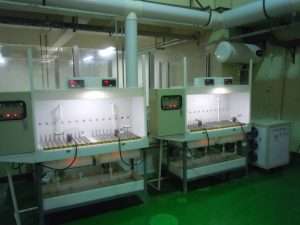Call us now:
The cost of refining gold can vary depending on a number of factors, such as the purity of the gold, the amount of refining, the refining method used, and current market conditions. Gold refining typically involves processes such as melting, purification and assaying to remove impurities and achieve the desired level of purity.
Refineries and precious metal processing facilities typically charge a fee or charge a percentage of the value of the refined gold. These fees can vary widely, ranging from 0.5% to 5% or more of the total value of the gold.
Additionally, services such as stone removal (if the gold contains gemstones), special handling of large quantities, expedited processing or specific assay requests may incur additional charges.
It should be noted that the cost of refining gold is usually calculated based on the "fine gold" content, that is, the content of pure gold after refining. The actual weight or quality of the gold may vary as impurities and other metals are removed during the refining process.
To determine the exact cost of refining your gold, it is advisable to contact a reputable refiner or precious metal processing company and ask what their current charges are. Prices may vary widely depending on location and specific services required.
certainly! In addition to refining costs, there are a few other factors that can affect the overall cost of refining gold:
Shipping and Insurance: If you need to transport your gold to a refinery, you may incur costs for shipping, insurance, and secure packaging to ensure it arrives safely. These costs will depend on the distance traveled and the value of the gold.
Minimum Batch: Some refineries have minimum batch requirements, which means they only accept a certain amount of gold for refining. If your quantity is below their minimum threshold, you may need to accumulate more gold or find a refinery that accepts smaller batches, which can affect the overall cost.
Market Conditions: The price of gold can fluctuate significantly based on market conditions and supply and demand dynamics. Refiners may adjust their fees and charges in response to these fluctuations. Therefore, it is important to consider current market conditions when estimating the cost of refining gold.
Additional Services: Depending on your specific needs, additional services may incur additional charges. For example, if you require a specific type of assay or analysis, such as fire assay gold or X-ray fluorescence, additional charges may apply.
Taxes and Duties: Depending on your location and applicable regulations, there may be taxes, duties or other government fees associated with refining gold. These fees may vary from jurisdiction to jurisdiction.
It is worth noting that refining gold can also recover other precious metals such as silver, platinum or palladium, depending on the composition of the material being refined. The presence of these additional metals also affects overall refining costs.
To get an accurate estimate of the cost of refining gold, it is best to contact reputable refiners directly, provide them with details about your gold and ask about their specific fees, charges and any additional costs associated with your requirements.


